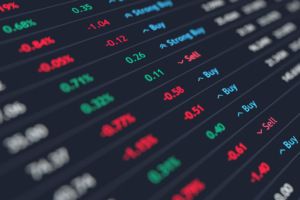Business
Russia invasion of Ukraine causes shares to plummet in Denmark
This article is more than 3 years old.
Petrol prices are soaring, while owners of Danish businesses that depend on trade with the aggressor fear the worst

Tremors are being felt throughout the global banking sector (photo: mcgillbusinessreview.com)
Russia’s invasion of Ukraine has resulted in stocks falling all over the world. At opening time this Thursday, the Danish C25 index of the country’s leading shares had fallen by about 4.79 percent. An hour later, it had recovered 2.8 percentage points, so still down 2 percent on yesterday.
The index is made up of some of Denmark’s biggest companies, including Vestas, Novo Nordisk and Maersk.
It continues what has been a poor year thus far, as the C25 index has already fallen by 14 percent in 2022.
“Investors are deeply nervous about what is happening in Ukraine right now,” explained Danske Bank chief analyst Jens Nærvig Pedersen, according to DR.
“They are simply selling out of risky investments such as stocks.”
What it means for Danish companies
The war in Ukraine means there will be sanctions – including many economic ones – and, first and foremost, Danish companies with trade interests in Russia will be hit hard.
Yesterday, the foreign minister, Jeppe Kofod, said that if President Putin carries out his threat against Ukraine, Russia will face “the most extensive sanctions politically and economically that the country has ever faced”.
Holger Bøgebjerg Sørensen is the owner of Pecus International, which dervices around 60-70 percent of its revenue from Russian customers. He told DR that his “company’s existence” is at stake.
Peter Thagesen, an executive at Dansk Industri, is more optimistic. He does not believe many Danes will lost their jobs.
“But of course, we have just come out of the corona pandemic, so a new crisis is not what we need,” he told DR.
Petrol prices also soaring
Meanwhile, the price of Brent crude oil has also gone up again.
At the time of writing, it cost $105.25 (701.51 kroner) a barrel – a rise of about $7.71 compared to yesterday.
“Not only is oil rising, but so is the dollar. In Denmark, we trade in kroner, so it determines the price of petrol down at the gas station,” explained Pedersen.
According to him, the petrol prices are at their highest in eight years.










































